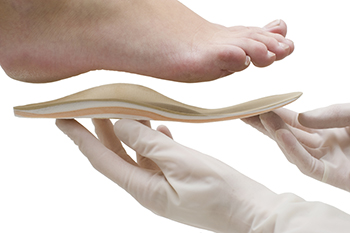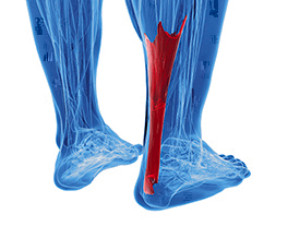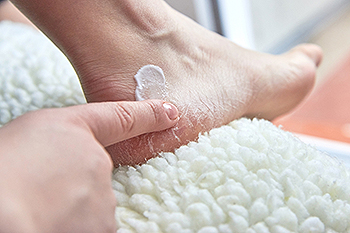Connect With Us
Blog

Foot orthotics, whether over-the-counter or custom-made, are specialized insoles designed to address various foot and gait-related issues. They work by correcting imbalances in foot structure and gait, improving posture, and relieving pain through support and pressure redistribution. Custom orthotics, which are molded to the individual's foot shape, offer a personalized fit ideal for specific alignment problems, pathologies, or deformities. They aid in healing by reducing strain on injured areas and can prevent conditions like stress fractures, tendonitis, and tendon rupture. Orthotics also provide cushioning, shock absorption, and enhanced stability, thereby reducing the risk of falls. Athletes can benefit from custom foot orthotics by improving foot support, limiting shock, and reducing tendon stress. This can enhance performance while minimizing injury risk. Over-the-counter insoles may offer basic comfort but lack the effectiveness of custom orthotics. This makes custom orthotics the preferred choice for those with unique foot-related needs. It is suggested that you make an appointment with a podiatrist to ensure the proper fit and function of orthotics tailored to your individual foot needs.
If you are having discomfort in your feet and would like to try orthotics, contact one of our podiatrists from Sutera and Jones Surgical Podiatry. Our doctors can provide the care you need to keep you pain-free and on your feet.
What Are Orthotics?
Orthotics are inserts you can place into your shoes to help with a variety of foot problems such as flat feet or foot pain. Orthotics provide relief and comfort for minor foot and heel pain but can’t correct serious biomechanical problems in your feet.
Over-the-Counter Inserts
Orthotics come in a wide variety of over-the-counter inserts that are used to treat foot pain, heel pain, and minor problems. For example, arch supports can be inserted into your shoes to help correct overarched or flat feet, while gel insoles are often used because they provide comfort and relief from foot and heel pain by alleviating pressure.
Prescription Orthotics
If over-the-counter inserts don’t work for you or if you have a more severe foot concern, it is possible to have your podiatrist prescribe custom orthotics. These high-quality inserts are designed to treat problems such as abnormal motion, plantar fasciitis, and severe forms of heel pain. They can even be used to help patients suffering from diabetes by treating foot ulcers and painful calluses and are usually molded to your feet individually, which allows them to provide full support and comfort.
If you are experiencing minor to severe foot or heel pain, it’s recommended to speak with your podiatrist about the possibilities of using orthotics. A podiatrist can determine which type of orthotic is right for you and allow you to take the first steps towards being pain-free.
If you have any questions please contact one of our offices located in Media, Glen Mills, Riddle Memorial Hospital, and Concordville, PA . We offer the newest diagnostic and treatment technologies for all your foot and ankle needs.

Achilles tendinopathy, or inflammation of the Achilles tendon, can hinder daily activities and mobility. The primary cause of Achilles tendinopathy is overuse, often prevalent among runners and others engaged in sports that involve repetitive stress on the Achilles tendon. This can lead to small tears and degeneration of the tendon, which connects the calf muscles to the heel. Those individuals with flat feet or over-pronated feet are at a higher risk. This can be a result of the flattened arches placing constant strain on the tendon, resulting in inflammation, pain, and swelling. Footwear choices, such as flip flops, sandals or high heels, can make the condition worse. Further, being overweight places extra stress on various body parts, including the Achilles tendon. A common symptom of Achilles tendinopathy is pain and tenderness in the back of the heel or ankle, which often gets worse with physical activity. Other symptoms can include stiffness in the ankle, reduced range of motion, and tendon swelling and thickening. Additionally, patents may experience a noticeable cracking or creaking sensation during movement. If you suspect you have Achilles tendinopathy or are experiencing any of these symptoms, it is suggested that you make an appointment with a podiatrist for a diagnosis and an appropriate treatment plan.
Achilles tendon injuries need immediate attention to avoid future complications. If you have any concerns, contact one of our podiatrists of Sutera and Jones Surgical Podiatry. Our doctors can provide the care you need to keep you pain-free and on your feet.
What Is the Achilles Tendon?
The Achilles tendon is a tendon that connects the lower leg muscles and calf to the heel of the foot. It is the strongest tendon in the human body and is essential for making movement possible. Because this tendon is such an integral part of the body, any injuries to it can create immense difficulties and should immediately be presented to a doctor.
What Are the Symptoms of an Achilles Tendon Injury?
There are various types of injuries that can affect the Achilles tendon. The two most common injuries are Achilles tendinitis and ruptures of the tendon.
Achilles Tendinitis Symptoms
- Inflammation
- Dull to severe pain
- Increased blood flow to the tendon
- Thickening of the tendon
Rupture Symptoms
- Extreme pain and swelling in the foot
- Total immobility
Treatment and Prevention
Achilles tendon injuries are diagnosed by a thorough physical evaluation, which can include an MRI. Treatment involves rest, physical therapy, and in some cases, surgery. However, various preventative measures can be taken to avoid these injuries, such as:
- Thorough stretching of the tendon before and after exercise
- Strengthening exercises like calf raises, squats, leg curls, leg extensions, leg raises, lunges, and leg presses
If you have any questions please feel free to contact one of our offices located in Media, Glen Mills, Riddle Memorial Hospital, and Concordville, PA . We offer the newest diagnostic tools and technology to treat your foot and ankle needs.

Dry, cracked heels are a common issue that can cause discomfort. These fissures in the skin often result from dryness, pressure, or various lifestyle and medical factors. While not usually a severe health concern, untreated cracked heels can become painful. This condition typically starts with dry skin. Daily activities such as standing, walking, or running exert pressure on the feet, causing the heel pads to expand. When combined with dryness, the skin can crack, creating openings for bacteria and viruses. Other potential causes of cracked heels include lifestyle choices that can include walking barefoot, taking hot showers, or using harsh soaps. Wearing ill-fitting shoes with poor support can also contribute to cracked heels. On a medical front, factors like diabetes, vitamin deficiencies, fungal infections, and hypothyroidism may also lead to developing cracked heels. Preventing cracked heels involves addressing dry skin and its underlying causes. Moisturizing is key, and products such as custom shoe inserts, padded socks, and heel relief sleeves can help protect and hydrate the skin. To treat existing dry, cracked heels, it is helpful to focus on hydration and protection. If this problem persists or causes pain, it is strongly suggested that you make an appointment with a podiatrist for a more advanced treatment plan.
Cracked heels are unsightly and can cause further damage to your shoes and feet. If you have any concerns, contact one of our podiatrists from Sutera and Jones Surgical Podiatry. Our doctors can provide the care you need to keep you pain-free and on your feet.
Cracked Heels
Cracked heels appear unappealing and can make it harder for you walk around in sandals. Aside from looking unpleasant, cracked heels can also tear stockings, socks, and wear out your shoes. There are several methods to help restore a cracked heel and prevent further damage.
How Do You Get Them?
Dry skin is the number one culprit in creating cracked heels. Many athletes, walkers, joggers, and even swimmers suffer from cracked heels. Age and skin oil production play a role to getting cracked heels as well.
Promote Healing
Over the counter medicines can help, especially for those that need instant relief or who suffer from chronic dry feet.
Wear Socks – Wearing socks with medicated creams helps lock in moisture.
Moisturizers – Applying both day and night will help alleviate dryness which causes cracking.
Pumice Stones – These exfoliate and remove dead skin, which allows for smoother moisturizer application and better absorption into the skin.
Change in Diet
Eating healthy with a well-balanced diet will give the skin a fresh and radiant look. Your body responds to the kinds of food you ingest. Omega-3 fatty acids and zinc supplements can also revitalize skin tissue.
Most importantly, seek professional help if unsure how to proceed in treating cracked heels. A podiatrist will help you with any questions or information needed.
If you have any questions, please feel free to contact one of our offices located in Media, Glen Mills, Riddle Memorial Hospital, and Concordville, PA . We offer the newest diagnostic and treatment technologies for all your foot care needs.
Blog Archives
- April 2024
- March 2024
- February 2024
- January 2024
- December 2023
- November 2023
- October 2023
- September 2023
- August 2023
- July 2023
- June 2023
- May 2023
- April 2023
- March 2023
- February 2023
- January 2023
- December 2022
- November 2022
- October 2022
- September 2022
- August 2022
- July 2022
- June 2022
- May 2022
- April 2022
- March 2022
- February 2022
- January 2022
- December 2021
- November 2021
- October 2021
- September 2021
- August 2021
- July 2021
- June 2021
- May 2021
- April 2021
- March 2021
- February 2021
- January 2021
- December 2020
- November 2020
- October 2020
- September 2020
- August 2020
- July 2020
- June 2020
- May 2020
- April 2020
- March 2020
- February 2020
- January 2020
- December 2019
- November 2019
- October 2019
- September 2019
- August 2019
- July 2019
- June 2019
- May 2019
- April 2019
- March 2019
- February 2019
- January 2019
- December 2018
- November 2018
- October 2018
- September 2018
- August 2018
- July 2018
- June 2018
- May 2018
- April 2018
- March 2018
- February 2018
- January 2018
- December 2017
- November 2017
- October 2017
- September 2017
- August 2017
- July 2017
- June 2017
- May 2017
- April 2017
- March 2017
- February 2017
- January 2017
- December 2016
- November 2016
- October 2016
- September 2016
- August 2016
- July 2016
- June 2016
- May 2016
- April 2016
- March 2016
- February 2016
- January 2016
- December 2015
- November 2015
- October 2015
- September 2015
- August 2015
- July 2015
- June 2015
- May 2015
- April 2015
- March 2015
- February 2015
- January 2015
- December 2014
- November 2014
- October 2014
- September 2014




